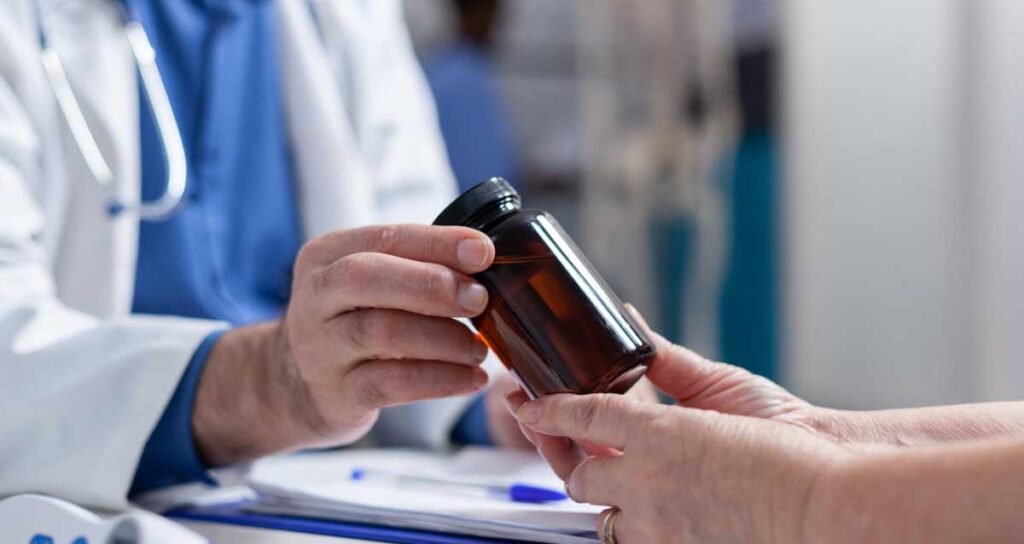Alcoholism is a major problem in today’s society, and it affects millions of people worldwide. One of the most important steps in overcoming alcoholism is detoxification. Detoxification, or detox for short, is removing alcohol from the body and is often the first step in treating alcohol addiction, and it can be a challenging process. Together with Dr. Jasdeep Sidana, this article will discuss how long it takes to detox from alcohol and what to expect.
What is Alcohol Detox?
Alcohol detox is the process of removing alcohol from the body in a safe and medically managed way. The purpose of detox is to allow the body to heal from the damage caused by alcohol abuse. Thus, it is typically the first step in the treatment of alcohol addiction and is necessary to manage withdrawal symptoms that can occur when an individual stops drinking alcohol. During detox, the body goes through several physical and psychological changes as it adjusts to the absence of alcohol. Dr. Jasdeep Sidana explains that the importance of detox cannot be overstated. At the same time, it also prepares the individual for the next steps in the treatment process.

What are the Symptoms of Alcohol Withdrawal?
When a person stops drinking alcohol, they may experience a range of physical and psychological symptoms as the body adjusts to the absence of alcohol. These symptoms can be mild or severe, lasting anywhere from a few days to several weeks.
Physical symptoms of alcohol withdrawal can include:
- Headache
- Nausea and vomiting
- Tremors or shaking
- Sweating
- Rapid heartbeat
- High blood pressure
- Seizures
Psychological symptoms of alcohol withdrawal can include:
- Anxiety or nervousness
- Depression
- Irritability
- Insomnia or difficulty sleeping
- Hallucinations
- Delirium tremens (DTs) – a severe form of alcohol withdrawal that can be life-threatening and requires immediate medical attention. DT symptoms include confusion, hallucinations, seizures, and high blood pressure.
Dr. Jasdeep Sidana also warns individuals that because of the potential for severe withdrawal symptoms, alcohol detox should be conducted under the supervision of a healthcare professional, such as a physician or addiction specialist. Detox can occur in various settings, including inpatient detox centers, hospitals, and outpatient clinics.
During detox, healthcare professionals may use medication to manage withdrawal symptoms and reduce the risk of complications. Some of the medications used during alcohol detox may include:
- Benzodiazepines can help manage anxiety, seizures, and other withdrawal symptoms.
- Antipsychotics can help manage hallucinations and delusions.
- Antidepressants can help manage depression and other mood disorders during withdrawal.
How Long Does Alcohol Detox Take?
The length of time it takes to detox from alcohol can vary depending on several factors, including the individual’s level of alcohol use, their overall health, and the type of treatment they receive. However, alcohol detox can take a few days to several weeks.
Dr. Jasdeep Sidana explains that the length of time for alcohol detox can be influenced by a variety of factors. “The amount of alcohol that a person has been consuming, the length of time that they have been drinking, and their overall health can all impact the length of time it takes to detox from alcohol,” he says. “In some cases, detox can take several weeks or even months.”
During alcohol detox, the body goes through several stages as it adjusts to the absence of alcohol. The first stage is the acute stage, which can last several days. During this stage, the individual may experience physical symptoms such as nausea, vomiting, and sweating and psychological symptoms such as anxiety and irritability.
The second stage of alcohol detox is the post-acute stage, which can last for several weeks or even months. During this stage, the individual may experience psychological symptoms such as depression and insomnia and physical symptoms such as headaches and fatigue. It’s important to note that not everyone will experience the same symptoms or progress through the stages of detox at the same rate.

What are the Treatment Options for Alcohol Detox?
Several treatment options are available for alcohol detox, including medical detox, inpatient detox, and outpatient detox. Each option has pros and cons, and the best option for an individual will depend on their specific needs and circumstances.
Medical detox is a supervised detoxification process in a medical setting, such as a hospital or detox center. During medical detox, medical professionals closely monitor the individual and may be given medications to help manage withdrawal symptoms. Medical detox is often recommended for individuals who have a history of severe alcohol withdrawal symptoms or other health conditions that may require medical attention.
Inpatient detox is a residential detox program in a specialized treatment center. Inpatient detox typically lasts several days to a few weeks and provides a structured environment for individuals to detox from alcohol. Inpatient detox may be recommended for individuals who do not have a safe or supportive home environment or who may benefit from additional support and resources during the detox process.
Outpatient detox is a less intensive option that allows individuals to detox from alcohol while continuing to live at home. Outpatient detox typically involves regular check-ins with a medical professional and may include medication-assisted treatment to manage withdrawal symptoms. Outpatient detox may be recommended for individuals with milder alcohol use or who may not have the resources to attend an inpatient detox program.
Dr. Sidana explains that the best treatment option for alcohol detox will depend on the individual’s specific needs and circumstances. “There is no one-size-fits-all approach to alcohol detox,” he says. “Working with a qualified healthcare professional to determine the best treatment option for you is important.”
What to Expect During Alcohol Detox?
During alcohol detox, the body goes through several physical and psychological changes as it adjusts to the absence of alcohol. These changes can be challenging and uncomfortable, but they are a necessary part of the detox process.
Dr. Sidana explains that the physical symptoms of alcohol withdrawal can be managed with medications and other supportive measures. “During the acute stage of detox, medications may be used to manage symptoms such as nausea, vomiting, and tremors,” he says. “In addition, individuals may benefit from nutritional support, hydration therapy, and other supportive measures to help manage the physical symptoms of detox.”
Psychological symptoms of alcohol withdrawal can be more challenging to manage and may require the support of a mental health professional. “During the post-acute stage of detox, individuals may experience psychological symptoms such as depression and anxiety,” says Dr. Sidana. “It’s important to have a support system, such as a therapist or support group, to help manage these symptoms and prevent relapse.”

How to Prevent Relapse After Alcohol Detox?
Preventing relapse is a critical part of the recovery process after alcohol detox. Unfortunately, relapse is common among individuals with alcohol addiction and can be a major setback in recovery. Several strategies can be used to prevent relapse, including:
- Developing a strong support system: Having a support system of friends, family, and healthcare professionals can provide the necessary support and resources to prevent relapse.
- Avoiding triggers: Identifying and avoiding triggers that may lead to alcohol use can help prevent relapse. Triggers may include social situations, stress, or other environmental factors.
- Participating in ongoing treatment: Ongoing treatment, such as therapy or support groups, can provide ongoing support and resources to prevent relapse.
Dr.Sidana emphasizes the importance of ongoing treatment and support in preventing relapse. “Alcohol addiction is a chronic condition, and ongoing treatment is necessary to manage the disease and prevent relapse,” he says. “Working with a healthcare professional to develop a personalized treatment plan that includes ongoing support and resources is important.”
In addition to these strategies, several lifestyle changes can help support recovery and prevent relapse. These may include:
- Engaging in regular exercise: Exercise can help reduce stress and anxiety and may also help reduce alcohol cravings.
- Eating a healthy diet: A balanced and nutritious diet can help support physical and mental health during recovery.
- Getting enough sleep: Getting enough sleep is essential for physical and mental health and can help reduce stress and anxiety.
- Practicing stress-reduction techniques: Techniques such as meditation, deep breathing, or yoga can help reduce stress and anxiety, which can trigger alcohol use.
Dr. Sidana emphasizes the importance of making lifestyle changes to support recovery. “Recovery is about more than just abstaining from alcohol,” he says. “It’s about creating a healthy and fulfilling life in sobriety.”
Conclusion
Alcohol detox is a challenging but necessary process for individuals with alcohol addiction. The length and severity of the detox process can vary depending on the individual, but working with a healthcare professional and choosing the right treatment option can help manage withdrawal symptoms and provide support during the recovery process.
Preventing relapse is a critical part of the recovery process, and several strategies can be used to support ongoing sobriety. For example, regular exercise, eating a healthy diet, getting enough sleep, and practicing stress-reduction techniques can all help support recovery and prevent relapse.
It’s important to remember that recovery is a lifelong process, and ongoing treatment and support are necessary to manage the disease of alcohol addiction. Working with a qualified healthcare professional, such as Dr. Jasdeep Sidana, can help ensure that individuals with alcohol addiction receive the support and resources they need to achieve and maintain sobriety.


